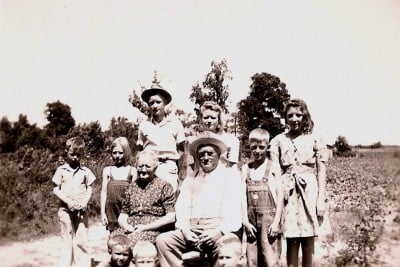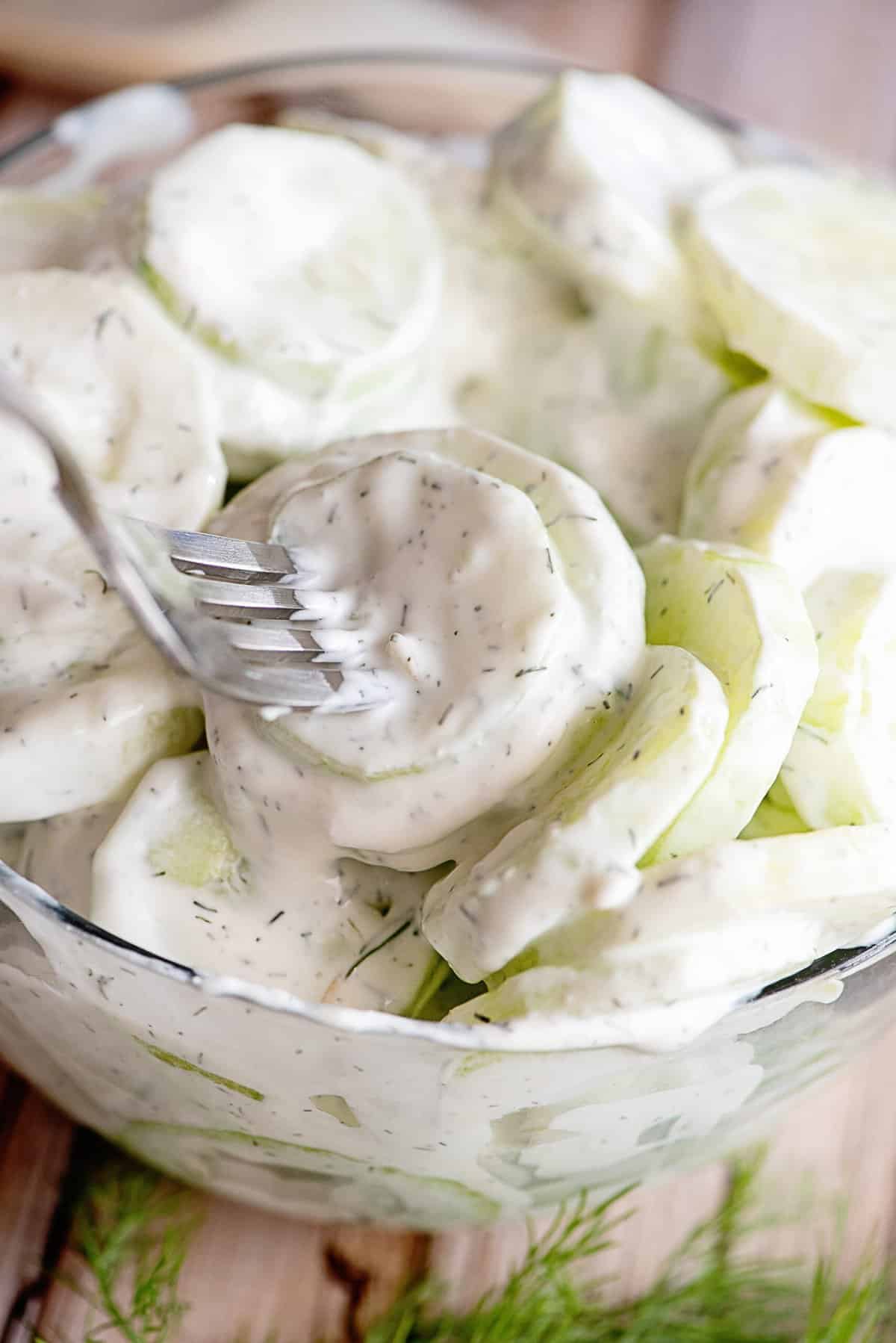Seven Cakes – Though Dirt Poor, They Had Cake For Christmas
As an Amazon Associate I earn from qualifying purchases.
Life during the depression in rural Alabama wasn’t too different from any other time of year for my people. You see, they were sharecroppers – dirt farmers who didn’t even own their own dirt. They wouldn’t have known if the world had been prosperous, their lives had always been a struggle of hard work and all too often relying on hope for the next meal.
This time of year, there wasn’t a whole lot to be thankful for, other than the fact that there wasn’t any cotton to pick. For them, winter was as bleak as the Alabama landscape. In Alabama, we are not often afforded the sight of glistening snow resting atop hills and trees in a winter wonderland. Here, the sky just gets gray and the landscape browns – bare trees, brown grass, and muddy earth where fields lay in wait for spring as far as the eye can see.
My great grandmother had four children and they all lived in a small shack house. Wood was a precious thing and that meant only heating one room. My grandmamma says “it got so cold at night. Mama would heat rocks and wrap ‘em up in old towels and things to put in bed with us but we still got so cold. You didn’t dare get out of that bed unless you just had to”.
Families would work all year for the farmer in exchange for monthly rations of staples such as dried beans, flour, and the occasional bit of meat. At harvest’s end they’d get a percentage of profits on the cotton, but all of the staples which had been provided for them were then deducted from the final cost, leaving families in a continued state of dependence upon the farm owner for enough food to survive the winter.
But with winter came Christmas, and my great grandmother always did manage to make it special despite their hardships. Lela’s life had always been a hard one. Growing up one of nine children in Jackson County, she had spent her childhood traveling from farm to farm with her parents and siblings, picking cotton and tending to whatever crops the farm owner decided to plant. Now she had four kids to provide a Christmas for and keeping them fed and clothed took about all she had and then some.
But she never failed them. She always came through, especially at Christmastime.
Lela squirreled away ingredients all year long. A little sugar here, some dried apples there, maybe some raisins and a bit of cinnamon. After the kids went to bed on Christmas Eve, she’d set to work. Using only what she had on hand and no recipes to speak of, Lela would stay awake all night baking cakes in her little wood stove. She’d make an apple stack cake, a raisin cake, yellow cake with chocolate icing, peanut butter cake, and so on. There was never a plan beyond that of needing to make seven of them – one for each day from Christmas until the New Year.
The next morning, four sets of eyes would open wide and four sets of feet would hurry out of their cold beds into the only heated room in the house where their faces would light up at seeing the bounty of seven cakes sitting on the worn kitchen table. I know how their faces looked because my grandmother’s still lights up the same way now, some seventy years later, when she talks about those cakes. The kids took turns being the one to choose the cake they ate that day and between the six of them and any company who happened by, they made short work of it and were ready to start with a new one the next morning.
Most kids today would consider having cakes baked for you as your only Christmas gift to be a disappointment. But amid all of the wrappings and bows, gift sets and feasts, I hope your Christmas somehow manages to be as magical as it was in that little sharecroppers house in Alabama during the depression, when four kids woke up with stars in their eyes at finding seven cakes.
Gratefully,
Christy
For a little Christmas gift click here
Merry Christmas from Southern Plate!
Click HERE for a printable PDF of this story









Christy,
Thank you for the lovely story. It is so much like stories my mother told of growing up during the Great Depression, on a cotton farm with six other siblings and dirt poor, too. They moved from Oklahoma to Arizona during that time, and had it even harder. The picture you showed looks like pictures they took and always out in the fields. It was a hard life, but they turned out to be a family of wonderful people, who appreciated life. They worked hard and loved their families, too. I think that is why Tom Brokaw called them the Greatest Generation. Most of them are gone now, and we miss them dearly. Thank you so much for reminding us of the true meaning of this blessed time of year.
Barb
Thank you ,Christie.You are the sweetest thing.
Christy,
Thanks for the wonderful tale of the days of old. It’s interesting to note how similar so many of our ancestors lives were even across great distances. Even in upstate New York back in the late 40’s my father, the oldest of eight on a small farm, remembers Grandma setting the food on the table and the kids having to eat as fast as they could for fear one of the others would eat more than their share and one would go hungry that day while working out in the fields. He even fondly recalls one year when he got a balloon for a Christmas gift and thought it was a splendid gift indeed.
Thank you for a nice reminder of what this season is all about.
Michael
HI CHRISTY,
I REMEMBER MY MOM TALKING ABOUT GROWING UP DIRT POOR, SHE WAS ONE OF FIVE KIDS SHE WOULD TELL US ABOUT HOW YOU COULD LOOK DOWN AT THE FLOOR AND SEE THE CHICKENS UNDERNEATH AND THE SNOW BLOWING THROUGH THE CRACKS IN THE WALLS. BUT THEY ALWAYS I MEAN ALWAYS HAD FOOD TO EAT. THEY NEVER WENT HUNGRY.
MY FOND MEMORIES WERE STAYING AT MY GRANDMAS THEIR HOUSE WAS BIG AND COLD. MY PAW PAW DIDN’T BELIEVE IN HEAT IN THE BEDROOMS AND MY GRANDMA MADE QUILTS AND SHE WOULD PUT THEM ON US AND TUCK US IN WE COULD NOT EVEN MOVE SO MANY QUILTS BUT YOU KNOW WE STAYED WARM. I HAVE ONE OF THOSE QUILTS TODAY. LIKE YOU SAID IF YOU HAD TO GO TO THE BATHROOM YOU BETTER GO BEFORE YOU WERE TUCKED IN. THIS WAS IS IN MISSISSIPPI TOO.
Thank you Christy- I’ve been a little sad and worried about not being able to buy as many gifts as I wish I could … You’ve reminded me what’s really important and that the people you love and who love you don’t really need expensive gifts. I’ve been baking cookies for everyone and I think that people are genuinely appreciative. I am not sure when it became so important to out-buy each other, but after reading your wonderful story, it all seems rather silly.
I love your site and you constantly make me cry, either from laughter or from the deep feelings you evoke in my heart. Thank you for bringing so much to my life. Linda from Texas
Christy, My mother’s and daddy’s families were also sharecroppers and very poor (did everyone back then make the same pictures?). However, they appreciated so much everything they were given and worked much harder than most people do today for that 25 cents that could be spent on all 5 children for Christmas. Mother talked about when the two older children were already gone from home and she was the one entrusted with the quarter to buy gifts for the other 5 children at home. She could recite who took her to town in a buckboard, how much she paid for each gift and how grateful they were for the combs, little vases, etc. that she could buy for a nickle each. Makes me feel foolish spending so much on our children and grandchildren. Thank you for helping me remember mother and daddy and what’s important.
Christy, thanks so much for the story. It helps remind us what is important is our family being together. My dad grew up very poor with a father who would not keep a job. He told me about not having shoes and other kids laughing at him. I think that is why I never remember seeing my dad without his shoes on.